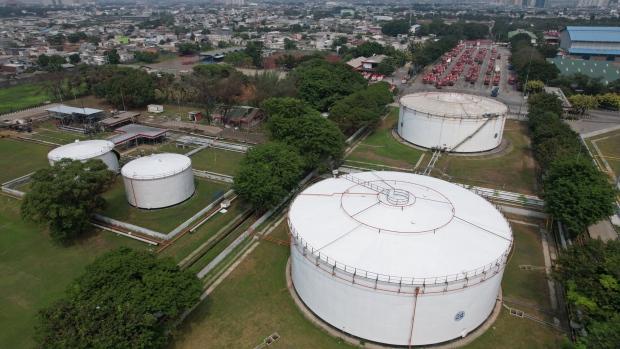Apr 25, 2024
High Commodity Costs Hurt Rate Cut Prospects, World Bank Says
, Bloomberg News

(Bloomberg) -- The decline in global commodity prices is stabilizing at levels that are still inflated, which could keep central banks from cutting interest rates quickly, the World Bank said.
Commodity prices have been little changed following a nearly 40% plunge from mid-2022 to mid-2023, according to a World Bank report Thursday. A further escalation of conflict in the Middle East could send costs up, but global commodity prices are otherwise expected to drop 3% this year and 4% in 2025, the organization said.
That will keep prices above most central banks’ targets for inflation, and roughly 38% higher than the five-year average prior to the Covid-19 pandemic, according to the report.
“A key force for disinflation — falling commodity prices — has essentially hit a wall,” the World Bank’s Chief Economist Indermit Gill said in a press release. “That means interest rates could remain higher than currently expected this year and next. The world is at a vulnerable moment: a major energy shock could undermine much of the progress in reducing inflation over the past two years.”
Prices for Brent, the global crude oil benchmark, are forecast to average $84 per barrel in 2024. A “more severe” supply disruption if the conflict in the Middle East were to escalate could push prices above $100 per barrel, according to the report.
Costs for key metals used in the global clean-energy transition — including copper and aluminum — also are seen rising this year.
©2024 Bloomberg L.P.






